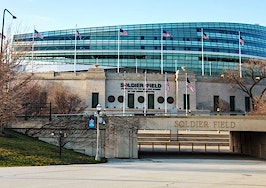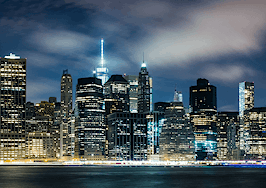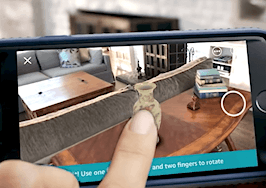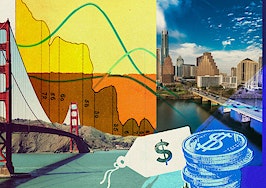Besides being one of America’s most-watched broadcasts in history, The Super Bowl casts far-reaching implications beyond what actually happens on the football field.
Businesses in Minneapolis — this year’s host city — will be packed to the brim with raucous fans taking in the full scope of the celebration, which means a spike in hotel prices, parking and that commemorative foam finger from street vendors.
A piece of the pie
With all that tremendous economic opportunity, does the real estate industry get a piece of that boom?
According to Teresa Boardman, broker and owner of Boardman Realty in St. Paul, the citywide event has actually been a bit of an impediment on business.
“Right now we have some opportunities to list homes that will have to wait until after the big game because of roads being closed off for the Super Bowl,” she said. “With other events going on in town and the extreme cold, many of us do not want to leave our homes.”
Boardman said the city is already facing an extreme shortage in homes for sale in the metro area, plus the cold weather — it’s expected to be a bone-chilling 3 degrees at kickoff — also usually leads to slower sales.
“I don’t see any evidence that the game will have a long-term impact on real estate sales,” she added. “There are some folks who are renting out their places and spending the weekend in warm places like Florida.”
Hotels are extremely hard to come by, which makes the short-term rental market piping hot. Rooms on Airbnb — single beds, not whole apartments — are going around $150-$200 a night, over the weekend with everyone in the city looking to make some extra cash.
“There are no hotel rooms in town,” Boardman said. “I have tried to help people find rooms, but the last time I found one anywhere near the game was a couple of weeks ago.”
Impacts of the big game
Historically, the short-term impact on the host city’s real estate market is undeniable, with the amount of listings jumping precipitously leading up to the marquee event over the past several years, according to a study from realtor.com.
However, the long-term picture is far murkier and inconclusive.
With last year’s big game in Houston, Texas, it’s hard to get a clear picture of the event’s impact, as the median price in the stadium’s ZIP code dipped 18 percent, largely in part due to Hurricane Harvey’s devastating impact.
However, leading up to the game, the number of listings in the city climbed 30 percent — 52 percent in the same ZIP code as the stadium — and the condo market was red hot.
Brooks Ballard, a sales associate with Engel & Völkers, told realtor.com that some buyers were throwing down $100,000 to $200,000 in cash for condo purchases.
More affluent visitors found it to be easier to buy a condo in cash then turn it right around and sell, rather than shell out thousands on a weeklong stay.
A tale of many cities
The real estate markets in the New York City metro area and San Francisco Bay area didn’t seem too phased by the game when they were the host areas in 2014 and 2016, respectively.
“People not even close to the stadium thought they could get two or three months’ worth of rent for a single week,” Rick Smith, real estate broker at Windermere Real Estate in Santa Clara, California told realtor.com. “It didn’t happen, and many were disappointed.”
While rental demand was high for the 2016 game — especially in San Francisco, where many pre-game festivities took place versus the stadium’s Santa Clara location — the overall impact to the market was negligible.
The study found that sales fell 4 percent the following year, possibly because the sky-high home prices of the Bay Area just didn’t appeal to the wealthy individuals who came into town that week.
In the New York City metro area, the story was similar: a 4 percent decline in median home listing price — although the small town of East Rutherford saw new home listings jump 150 percent around the game — likely because New York City doesn’t need a huge event like the Super Bowl to sell itself.
Both the cities of Phoenix and New Orleans saw a huge boost in the year following the event.
New home listings in the Phoenix metro jumped 31 percent in January and February of 2015, compared to 22 percent nationally, according to the study. Overall, the median home price rose 24 percent in the year following the game.
New Orleans experienced similar growth in 2013.
“The game gave the New Orleans housing market a big jolt,” Joyce Delery, a broker at Engel & Völkers told realtor.com. “These [fans] are the type of people who could afford second or third homes … you have people who make impulse buys.”
The median home price in New Orleans rose 25 percent in the year following the Super Bowl, and listings around the stadium rose 67 percent leading up to the game.
It’s too early to tell the results of this year’s big game on real estate, but based on the limited data we have so far, it seems that smaller cities — like Minneapolis, Phoenix and New Orleans — tend to see a boost in sales, while major cities such as New York and San Francisco hold steady.













